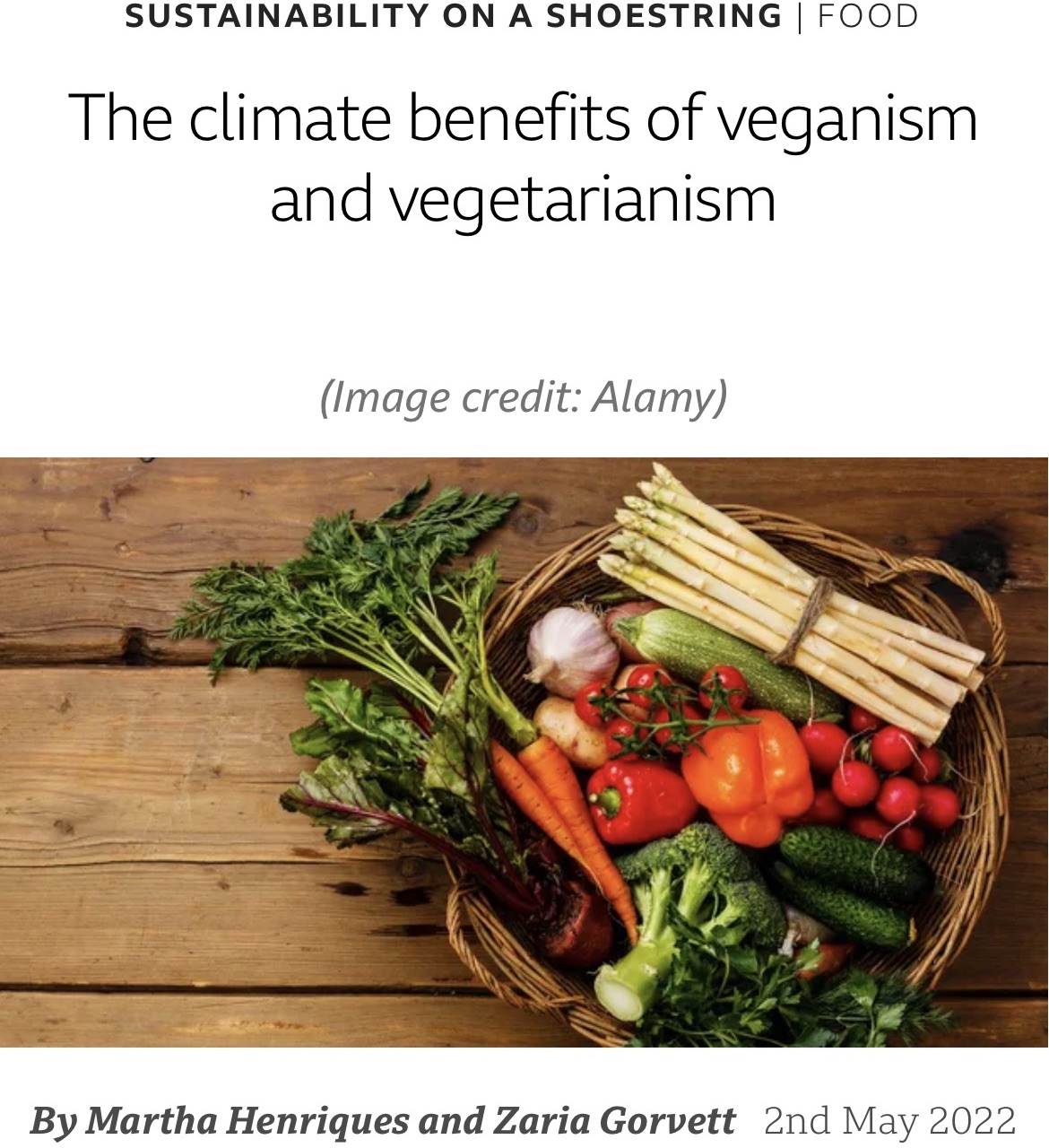Dietary habits of the twig children

BBC Future does science. Except, it doesn't really.
Writing for BBC Future, Martha Henriques and Zaria Gorvett, explore the climate benefits of veganism and vegetarianism. In a two-week experiment
, Sarah Bridle—professor of food, climate and society at the University of York—followed the dietary habits of one named vegan (Gorvett, as it happens), one named vegetarian (Henriques, quelle surprise!), both of whom seemed to be out to make a point, and one anonymous omnivore. From the data collected, she calculated the environmental impact of the emissions associated with each diet.
Unsurprisingly, the vegan diet came out best, with the vegetarian a close(ish) second, and the omnivore a distant third. Compelling stuff, no? That's right, no!
Firstly, this was not an unbiased population sampling. Both Mses Gorvett and Henriques have a vested interest in championing their own lifestyle choices, writing an article for which they were undoubtedly remunerated.
Secondly, it's highly unlikely that a single individual can represent the average, or typical, for their particular dietary lifestyle. In order to make a more meaningful assessment, larger groups of randomly-selected volunteers would be needed. Information would be collected over a longer period of time, to take into account seasonal availability of foodstuffs. The study would include personal and lifestyle factors, such as body weight and levels of activity, to account for differences in calorie requirements.
I'm not challenging the thesis that vegans probably have the lowest environmental impact, and omnivores the highest. But that doesn't make the work of Bridle, Gorvett, and Henriques any more relevant. Given its limitations, this is nothing but a vanity project for the authors, a possibly misinformative one at that, and another opportunity for Gorvett to smugly bang the drum for veganism.
So for now, our vegan will continue avoiding animal products, feeling rather pleased with herself, and our vegetarian will fork her compost with renewed determination.
Martha Henriques and Zaria Gorvett, The climate benefits of veganism and vegetarianism, BBC Future
The most compelling question that arises from this experiment
is: how many licence fees were wasted in its conduct and reporting?
Additional arsey science bitch-slap
When food breaks down in a low-oxygen environment like a landfill, much of its carbon turns to methane instead of CO2. Methane is around 80 times more potent a greenhouse gas than CO2 in its first 20 years in the atmosphere (though over time methane breaks down, whereas CO2 is much longer-lived).
Martha Henriques, The climate benefits of veganism and vegetarianism, BBC Future
As I read that, I grew suspicious. Because it implies that the breakdown of methane makes it somehow okay
, despite its higher global warming potential, in comparison to releasing carbon dioxide. At least that's the message that a reader might come away with.
Certainly, methane will break down. But, equally certainly, that would be by oxidation, wouldn't it? And, sure enough, less than two minutes' searching revealed that the breakdown product of atmospheric methane is, indeed, carbon dioxide. (rolleyes)
After a decade, most emitted methane has reacted with ozone to form carbon dioxide and water. This carbon dioxide continues to heat the climate for hundreds or even thousands of years.
Zebedee Nicholls and Tim Baxter, Climate explained: methane is short-lived in the atmosphere but leaves long-term damage, The Conversation
So, whether primary emissions are methane or carbon dioxide, the end-product in the atmosphere is the long-lived carbon dioxide. It's unclear whether the ambiguity in Henriques' writing reflects a deficit in her understanding or communication skills.
And, with that, petty points won! (thumbup)
When my youngest daughter, Emily, started main school, we looked into an alternative
, a local(ish) Montessori that was even more freewheeling than her pre-school. When we visited, some of the children were learning
in the woods, with leaves and twigs in their hair. I have ever since referred to them as the twig children
. Fortunately, Emily chose to get a proper education instead.

